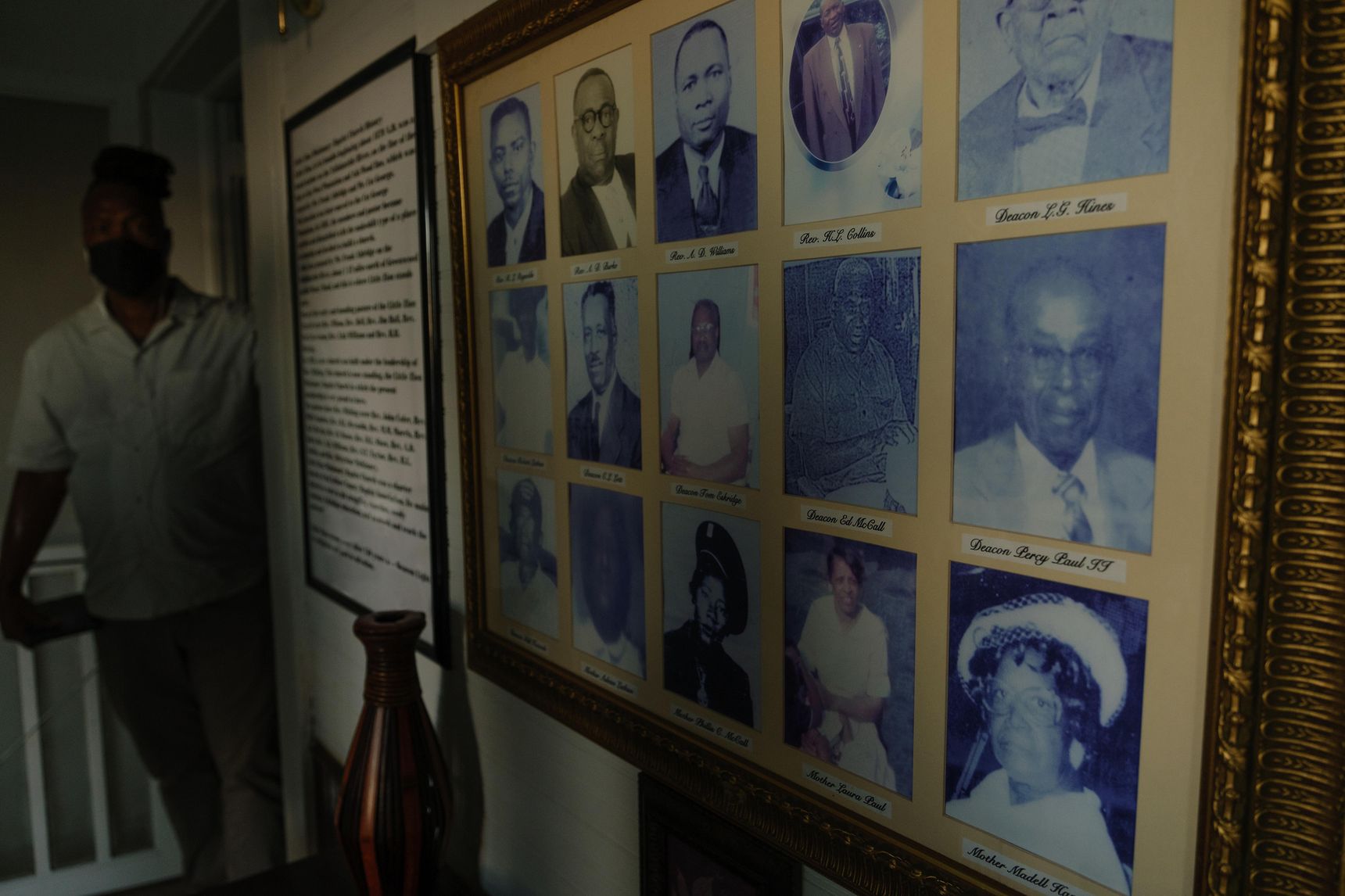Here’s the whole article I wrote with Phil Magness, published in the Wall Street Journal on February 20 (February 21 print edition.)
‘The 1619 Project’ on Hulu Vindicates Capitalism
Its examples of racism are all the result of actions by governments.
Hulu’s series “The 1619 Project” blames economic inequality between blacks and whites on “racial capitalism.” But almost every example presented is the result of government policies that, in purpose or effect, discriminated against African Americans. “The 1619 Project” makes an unintentional case for capitalism.
The series gives many examples of government interventions that undercut free markets and property rights. Eminent domain, racial red lining of mortgages, and government support and enforcement of union monopolies figure prominently.
The final episode opens by telling how the federal government forcibly evicted black residents of Harris Neck, Ga., during World War II to build a military base. The Army gave residents three weeks to relocate before the bulldozers moved in, paying below-market rates through eminent domain. After the war, the government refused to let the former residents return. Violation of property rights is the opposite of capitalism.
The series also highlights the noxious role of the Federal Housing Administration in red lining. The FHA discriminated against minority neighborhoods by classifying them as too “hazardous” for lending. The writers could have strengthened their case by citing Richard Rothstein’s 2017 book, “The Color of Law.” Mr. Rothstein quotes the FHA’s statement in the 1930s that “no loans will be given to colored developments.” This policy lasted into the 1970s, leaving a legacy of economic segregation. Capitalism wasn’t the culprit; the government was.
Economic historians have long known about discrimination by all-white labor unions. Jimmy Carter’s labor secretary, Ray Marshall, a labor economist, chronicled this discrimination in his academic work. The Wagner Act of 1935 gave white unions privileged bargaining positions under federal law. This government-sanctioned cartelization of labor allowed entire industries to exclude black workers. “The 1619 Project” asserts that labor unions advance the cause of civil rights, though the historical record says otherwise.
The series recognizes the discriminatory effects of Franklin D. Roosevelt’s legislative agenda, which depended on the Democratic machines of the Jim Crow South. The narrator states that “the New Deal represented the first affirmative-action policy for white people.” We couldn’t have put it better.
These and other government policies caused immense economic harm to African Americans. But they aren’t capitalism. They’re interventions into markets, state-sanctioned theft, and political payoffs to segregationists.
The answer to these problems isn’t to place the burden on the market through reparations. It’s to root out bad government policies that continue, sometimes unintentionally, the long legacy of state-sponsored racial discrimination. That would be a worthy 2023 project.
Mr. Henderson is a research fellow with Stanford University’s Hoover Institution and editor of The Concise Encyclopedia of Economics. Mr. Magness is director of research at the American Institute for Economic Research and author of “The 1619 Project: A Critique.”


READER COMMENTS
Richard W Fulmer
Mar 24 2023 at 11:45am
African Americans aren’t suffering from systemic racism nearly as much as they’re suffering from systemic paternalism. Many of the problems that black and other Americans face today are systemic, but they’re caused by progressive institutions and policies, such as:
– Teachers unions
– Minimum wage laws
– Occupational licensing
– Rent control
– Welfare restrictions that favor single-parent families
– High marginal tax rates on earnings by welfare recipients
– Zoning restrictions
Phil H
Mar 25 2023 at 1:57am
I’m pretty sympathetic to the main argument, that markets tend to support equality and rights, but I’d push back against this.
“Violation of property rights is the opposite of capitalism.”
The way I understand capitalism is that it’s the people with money who get the political power (which is often used to violate rights of all kind). Communism means it’s the Communist Party that gets the political power (and commit abuses). The -ism part is doing a lot of the heavy lifting in my definition, but I think this is broadly supported by the way the word’s been used historically.
A rule-of-law, free market society is the opposite of these -isms. And you can certainly argue that the best way to cure the ills of capitalism is to reduce the government’s power. But the word itself has always been about the unholy alliance of money and politics.
Jon Murphy
Mar 25 2023 at 4:48am
There’s not much evidence to support your understanding here. First of all, capitalism (and communism, for that matter) is a description of who owns the means of production, not political power. One could argue that owning the means of production leads to political power (as many have) but as far as I know, no one has ever used capitalism to mean “people with money get political power.” Such a definition would fundamentally misunderstand what the “capital” in “capitalism” (or the “commune” in “communism”) refers to. We’re talking means of production, not money.
Comments are closed.